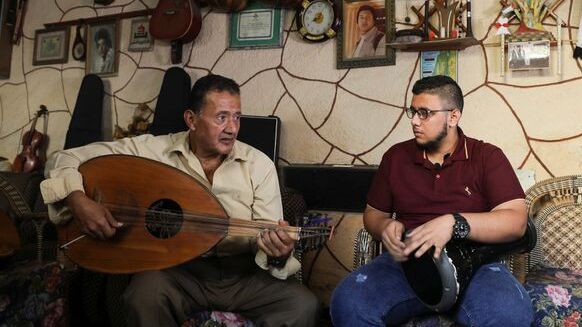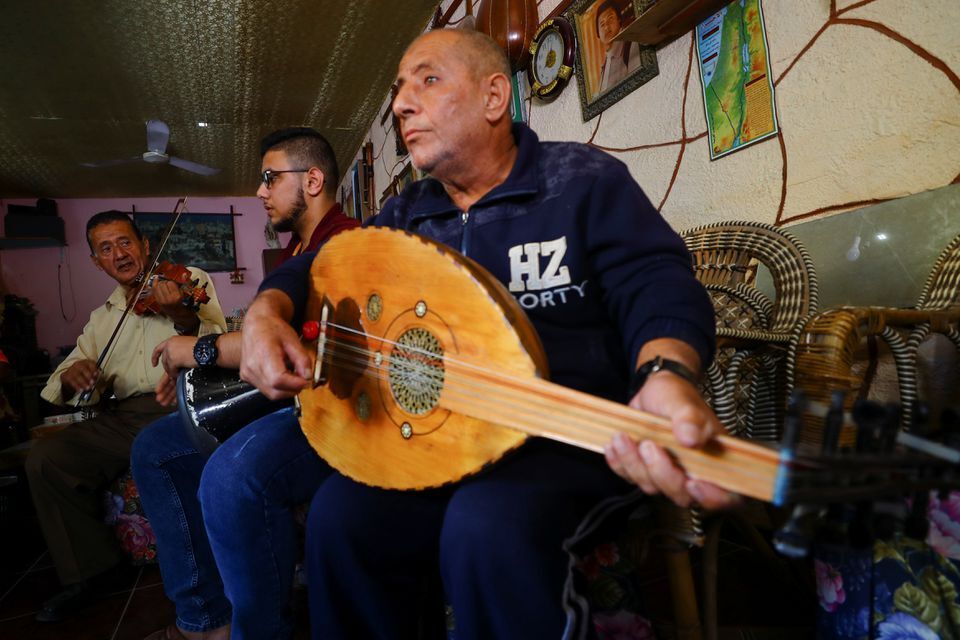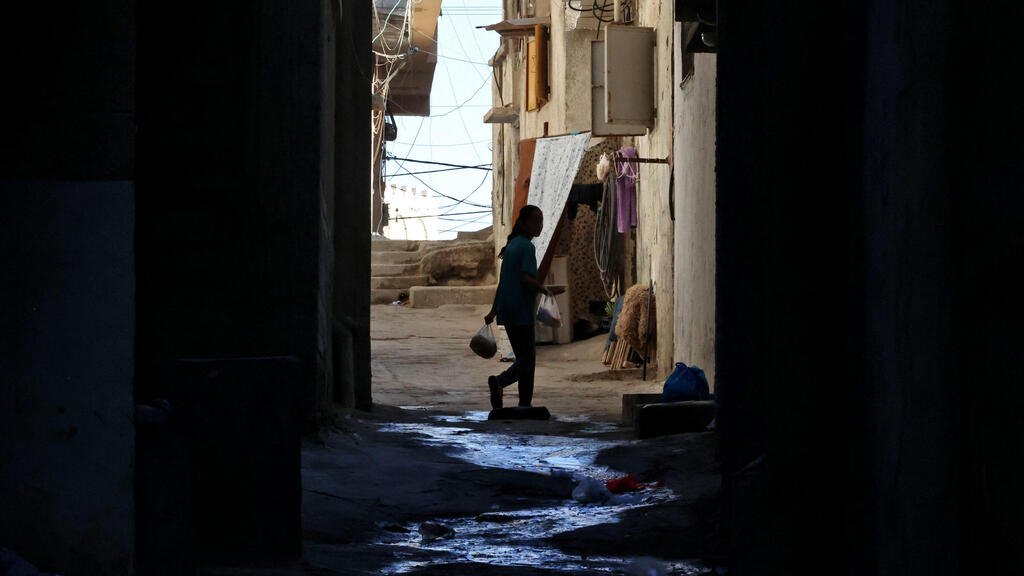Before hostilities flared again with Israel in May, Palestinian violinist Khader El-Bayed used to be inundated with students, offering a rare opportunity to learn a musical instrument to a dozen or more per day.
But now, with the economic downturn that accompanied the fighting, fewer than half that number attend the studio he has set up in his Gaza Strip home.
3 View gallery


Palestinian musician Khader El-Bayed (L), who turned his house into a music hub, trains a man how to use music instruments in Gaza City
(Photo: Reuters)
The impoverished enclave of two million people has only one musical academy, making Bayed's instruction all the more precious - something his nephew Hussam Bayed, who is learning the drums, knows how to appreciate.
"When you play you feel happiness and joy and you empty the bad energy inside you," said 19-year-old Hussam, who highlights his uncle's studio as a ray of light amid Gaza's otherwise dour and difficult day-to-day.
Alongside Bayed's music studio which grants Gaza's children the freedom and expressiveness of music, the Palestinian enclave also recently saw the opening of its first-ever semi-professional Parkour studio, teaching young Palestinians how to navigate urban obstacles.
In Gaza - fenced in from three sides by Israel and Egypt, since the Hamas terrorist group took power in 2007 - conditions have only deteriorated in recent months, following the May conflict between Israel and Gaza's terror factions, which all-but leveled much of the overcrowded city and rendered life even more difficult for its residents.
Israel, meanwhile, agreed to several concessions and reliefs following the May war, aimed mainly at maintaining the fragile calm negotiated between the two sides by Egypt.



